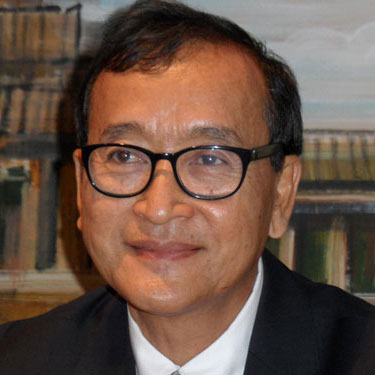The daily slaughter of innocents in Myanmar is a tragic wake-up call to the international community that it must isolate regimes which murder their own sons and daughters on the streets.
Teenagers are among those that the Myanmar military is shooting dead each day. Ambulance workers who were not even protesting have been savagely beaten for simply trying to help them.
The precedent for an international boycott in such circumstances is clearly provided by apartheid South Africa. The massacre of schoolchildren in Soweto in 1976 was the point at which the international campaign to isolate the apartheid regime achieved momentum. Without that sustained international determination, apartheid would certainly have lasted longer and might still be in place today.
The private sector played its part in freezing investment in South Africa and most large multinationals had pulled out of the country by the late 1980s. The isolation was most glaring and high-profile when it came to sporting events from which South Africa was banned. The rest of the world should ask itself whether it wants to play any form of sport with Myanmar.
The sanctions ultimately worked even though they were not uniformly applied – the US, for example, continued to trade strategic minerals, diamonds and gold with South Africa. The apartheid government found lots of ways to circumvent the sanctions which were applied. Sanctions are a blunt tool and can’t be applied with exact efficiency. That doesn’t mean they are ineffective. Those who have studied the impact of the sanctions have found that it strengthened the hand of powerful whites in South Africa, and especially those in the business community, who understood that the system had to change.
Though many died along the way, the final unravelling of apartheid was peaceful. The lesson is that the needs of business can be the motor for change. But the international community has to align incentives and disincentives to make this possible. Simply handing out trade deals and aid to rotten regimes has the opposite effect and shores up those who have achieved power through the barrel of a gun.
Magnitsky legislation
Isolating Myanmar would enable the international community to rediscover its legitimate capacity to hold regimes to account when they violate basic norms. It would jolt the Association of Southeast Asian Nations out of its lethargic, complacent acceptance of regimes that stay in power through brutality.
The protests that have taken place in Myanmar and Thailand show that authoritarianism is no longer viable as a system of government in southeast Asia. The younger generations will not accept it. Increased Internet penetration and levels of education mean that it’s impossible to put the genie of democratic discussion back into the bottle. The blocking out of the Internet in Myanmar after the military coup simply served as a trigger for protests. Cambodia’s Prime Minister Hun Sen, who in February signed a decree putting the country’s Internet traffic under the control of a government-appointed operator, should take note.
The point here is not to conflate Myanmar and Cambodia. The world must make its decisions on Myanmar on the merits of the case. Of the dictatorships in southeast Asia, Cambodia gets the least media attention, though Hun Sen’s regime has killed its own people and sought to destroy the game of democracy that it knows it cannot win. The regime is highly centred on the personal power of Hun Sen and Cambodia’s state institutions are much weaker than those of Myanmar or Thailand. That makes the Cambodian regime the most brittle of the three. It could fall at any time.
The legislative tools which are increasingly available in the world’s democratic countries means that it is possible to combine generalised economic sanctions with individual sanctions targeted at the individuals responsible for massacres and human rights abuses. Magnitsky-style legislation exists or is being adopted in many democratic countries. Such laws can be used to freeze assets, block access to the legislating country’s financial system and prevent dictators from sending their children abroad to be educated. Such legislation is under consideration in Australia and the carnage in Myanmar must surely mean it is time for adoption.
South Africa’s international isolation took time to achieve. It was not until 1994, 18 years after the Soweto massacre, that a post-apartheid government was elected. Yet the advance of technology means that the brutality of rogue regimes is now instantly available for the whole world to see. Collective international action from governments, the private sector, international sporting organisations and civil society can therefore be achieved much faster. In the case of Myanmar, there is no excuse for further delay.
The views and opinions expressed in this article are those of the author.

Sam Rainsy, Cambodia’s finance minister from 1993 to 1994, is the co-founder and acting leader of the opposition Cambodia National Rescue Party (CNRP).

